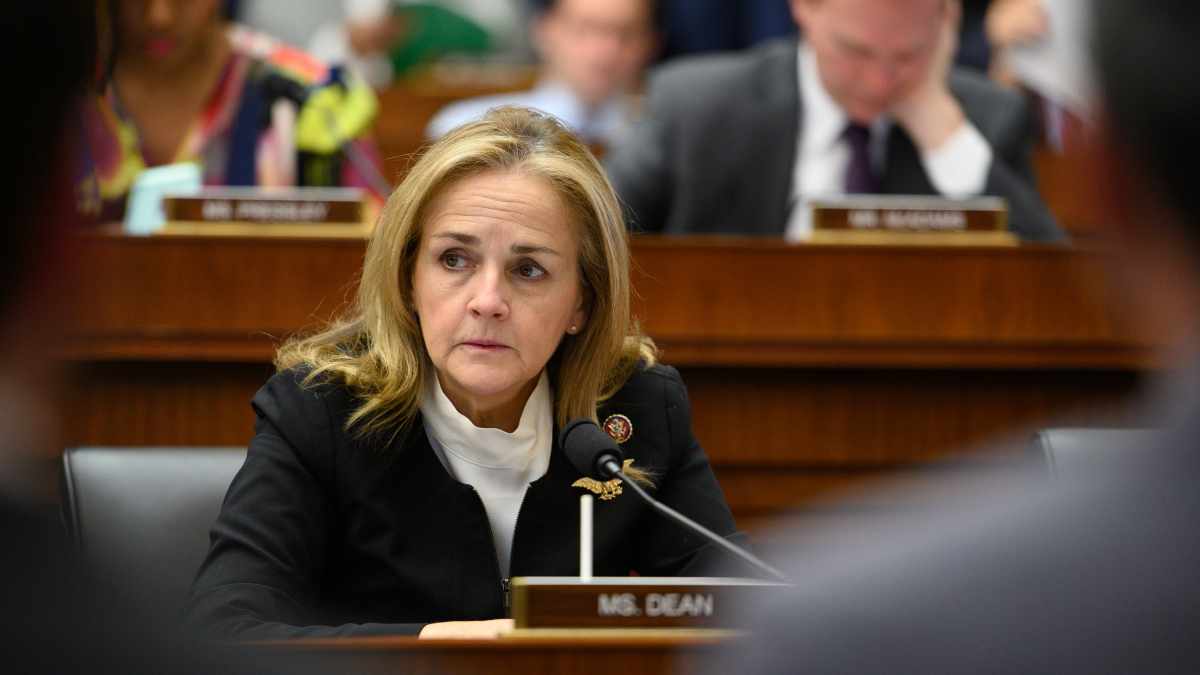Should the federal government study and develop reparation proposals for African Americans? Members of the House Judiciary Committee think so, and two Delaware Valley Democrats were part of Wednesday’s vote to create a reparations commission.
“Our nation’s history of racism stands well beyond slavery, Jim Crow, segregation, (and) the horrors of our lynching histories,” Judiciary Committee vice-chair Rep. Madeleine Dean (D-Montgomery) said during Wednesday’s markup proceedings for the legislation known as H.R. 40. “It extends into our structures and the systems that continue to perpetuate inequalities today.”
Her Delaware Valley colleague, Rep. Mary Gay Scanlon (D- Chester), is also on the Judiciary Committee and backed the call for a reparations commission.
“In America’s ongoing pursuit of becoming a more perfect nation, it is essential that we examine our past wrongdoings – including the vile practice of human slavery,” Scanlon’s spokesperson Lauren Cox told Delaware Valley Journal. “H.R. 40 would allow for a first step in the long-overdue process of reckoning with America’s dark history of slavery and subsequent mistreatment of Black people.”
The bill, introduced by Rep. Sheila Jackson Lee (D-Texas), establishes the Commission to Study and Develop Reparation Proposals for African Americans. Moreover, the commission would examine slavery and discrimination in the colonies and the United States from 1619 to the present and recommend the following remedies:
The commission shall identify (1) the role of the federal and state governments in supporting the institution of slavery, (2) forms of discrimination in the public and private sectors against freed slaves and their descendants, and (3) lingering negative effects of slavery on living African Americans and society.
The commission would also make recommendations concerning any form of apology and compensation to begin what Jackson Lee has described as “the long-delayed process of atonement for slavery.”
It’s the issue of compensation that inspires the most debate. Polls consistently show Americans — and Pennsylvanians — oppose slavery reparations. A 2019 Gallup poll found 67 percent of Americans opposed payments for slavery reparations. In 2020, a Reuters/Ipsos poll asked Americans whether they support reparations to address the legacy of slavery and to tackle the wealth gap between Black and White Americans. One in five respondents said yes.
The House Judiciary Committee voted 25 to 17 Wednesday to advance the H.R. 40. If it passes the full House, it will go to a divided Senate for consideration.
One Black legislator who’s not in favor of a reparation committee is Rep. Burgess Owens (R-Utah). He said that “slavery was and still is an evil,” but the reparation issue is “divisive.”
While speaking to his colleagues on the House Judiciary Committee, Owens praised his parents’ generation for working hard, going to college, and teaching their children the importance of a good education. That, said Owens, is not something being promoted today.
“Every place Democrats oversee a Black community there is misery, and we’re going to blame White people?” Owens said. “How about an ideology? How about we take ownership? Educate our young people again? Give them jobs and opportunities again? Tell them that the way to get by in this country is through the free market?”
In 2020, a poll reported by Pennsylvania American Catholic Tribune asked Catholics in the Keystone State whether they supported reparations. Of the 419 respondents, 84.5 percent said no.
Dean offered a rebuttal to skeptics during the Judiciary Committee hearing: “Hasn’t the last year educated us or re-educated us about injustices, the historical injustices?”

